It can be surprising how many of the songs we use to form our identities were originally borrowed from other cultural traditions. My Way might be the ultimate emblem of bootstrapping American individualism, but the tune, popularized by Frank Sinatra in 1969, was actually borrowed from a French ballad from two years earlier, Comme d’habitude, a song by Jacques Revaux about falling out of love. And closer to Taiwan, Teresa Teng’s Tian Mi Mi (甜蜜蜜) may have been elevated by Teng’s angelic voice to the firmament of iconic Mandarin love songs, but the melody actually came from a traditional Indonesian folk song.
These and other songs that cross borders will be the subject of a talk by local music historian Eric Scheihagen on April 14 at the Lung Yingtai Cultural Foundation in Taipei: “Rose, Rose, I Love You & Others—on Transnational Asian Popular Songs.” Attendance is free with advance registration, and unusually for Schiehagen, the talk will be in English –– more often than not, his lectures are in Mandarin under his Chinese name Xu Rui-kai (徐睿楷).
OBSESSIVE MUSIC COLLECTOR

Photo courtesy of Eric Scheihagen
Scheihagen, a legal translator who has the slightly unkempt appearance of one who keeps to the back of the office, is an obsessive music collector who is slowly becoming recognized as one of Taiwan’s leading music historians. Since the early 2000s, the 53-year-old has co-hosted Chinese-language shows on three Taiwanese radio stations, along the way receiving two Golden Bell nominations. He has also written liner notes for local record companies Wind Music, Big Trees Music and Taiwan Colors Music, curated and contributed to exhibitions on Taiwan music history, and frequently guest lectures at universities around the island.
“He’s a living encyclopedia of music,” says Trees Music founder and academic Chung Shefong (鍾適芳). “Eric’s contribution as a researcher and collector of Taiwanese popular music could well merit its own chapter in this history.”
“I’ve never regarded Eric as a foreigner,” she adds, saying that when hearing him talk about Taiwanese music history, “it’s very difficult to feel that he is discussing a ‘foreign’ culture, as he’s more thoroughly immersed in it than any of ‘us.’”
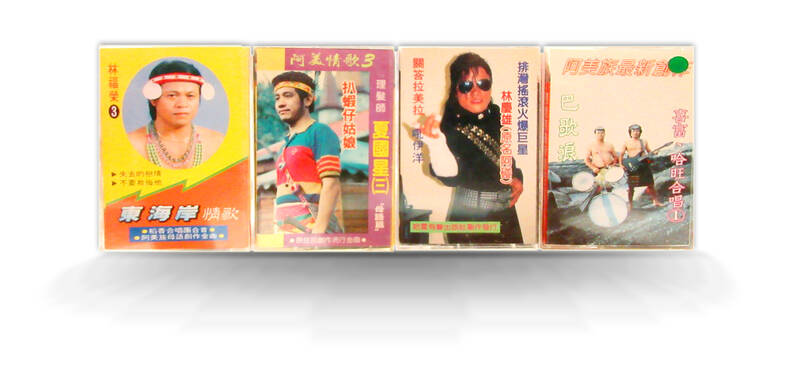
Photo courtesy of Eric Scheihagen
When I ask the size of his collection, he just gives me an exasperated look.
“It’s really hard to estimate,” he shrugs.
In Scheihagen’s too-small apartment in New Taipei City’s Tamsui District (淡水), cabinets and shelves are overstuffed, table tops are piled high and if he invites you to sit on his sofa, he will probably have to move a stack of records or books to make space for you to sit down.
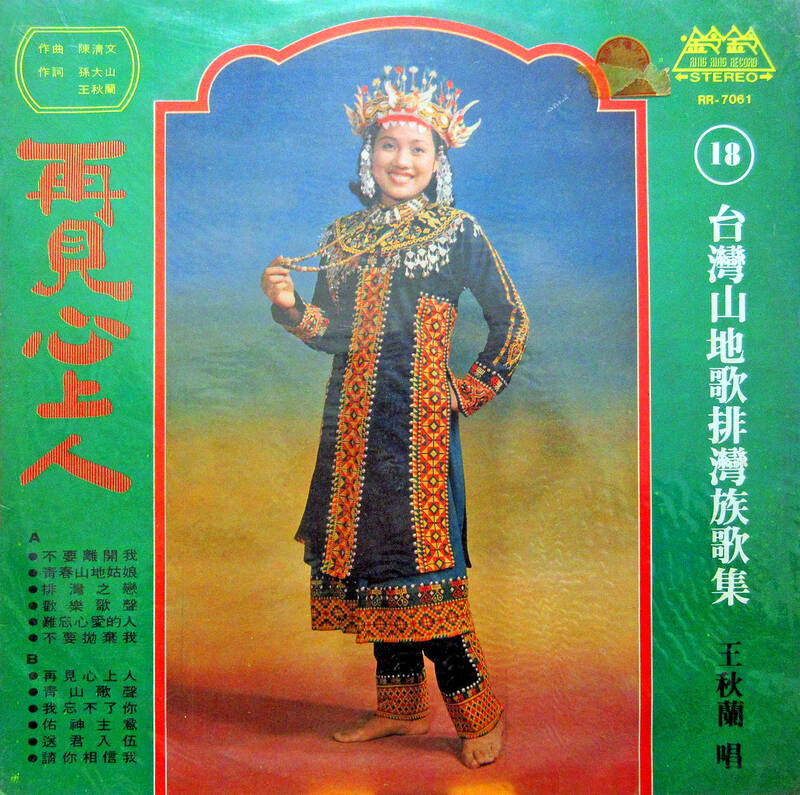
Photo courtesy of Eric Scheihagen
“For vinyl, I have at least a thousand records, but how many over a thousand I really don’t know. For CDs, probably at least three or four thousand, and then there are the cassettes and eight tracks, which are….?” he says.
So far, he has digitized at least 5,000 albums, but doesn’t know what percentage of his collection that accounts for, he says.
The most unique areas of Scheihagen’s collection reflect his personal obsessions and idiosyncrasies: the emergence of rock ‘n’ roll in Taiwan, banned songs of the Martial Law era and an unparalleled collection of early Aboriginal pop music from the indigenous communities of southeastern Taiwan.
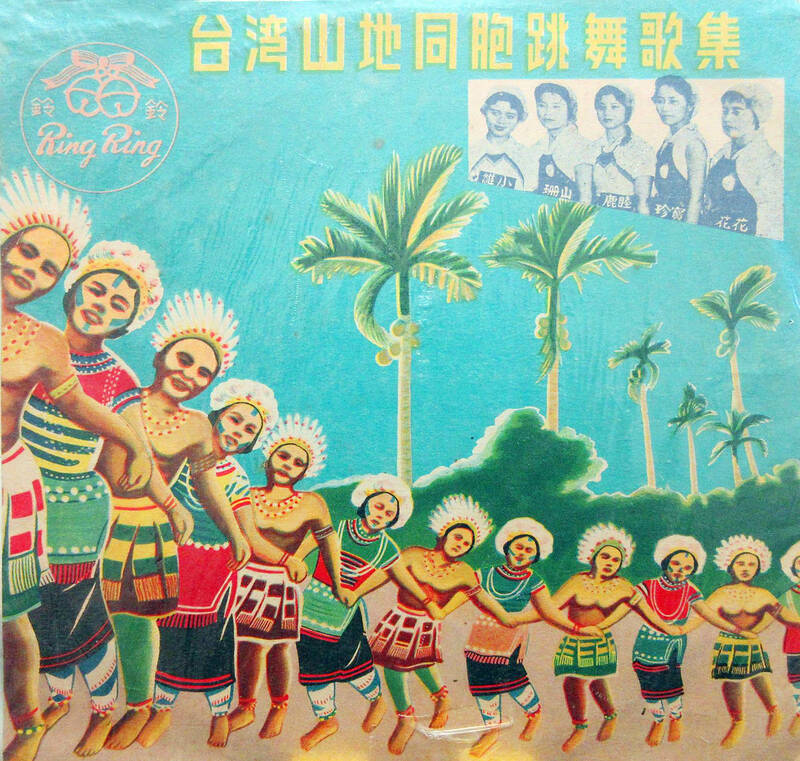
Photo courtesy of Eric Scheihagen
INDIGENOUS MUSIC
Though largely forgotten, a niche recording industry for the music of indigenous communities date back to the 1960s, which began with ethnographic or world music LPs, but by the 1980s, developed a new strain of “abo pop,” bawdy and comic songs sung in a mix of Mandarin and Austronesian languages. They were sold on cassette tapes almost exclusively within Taiwan’s indigenous-heavy regions of Pingtung, Taitung and Hualien counties, says Scheihagen.
He discovered this music around 1999 when he chanced into a small, specialty record shop in Taitung, Shan Wang Music (杉旺音樂城), which turned out be a treasure trove of the genre.
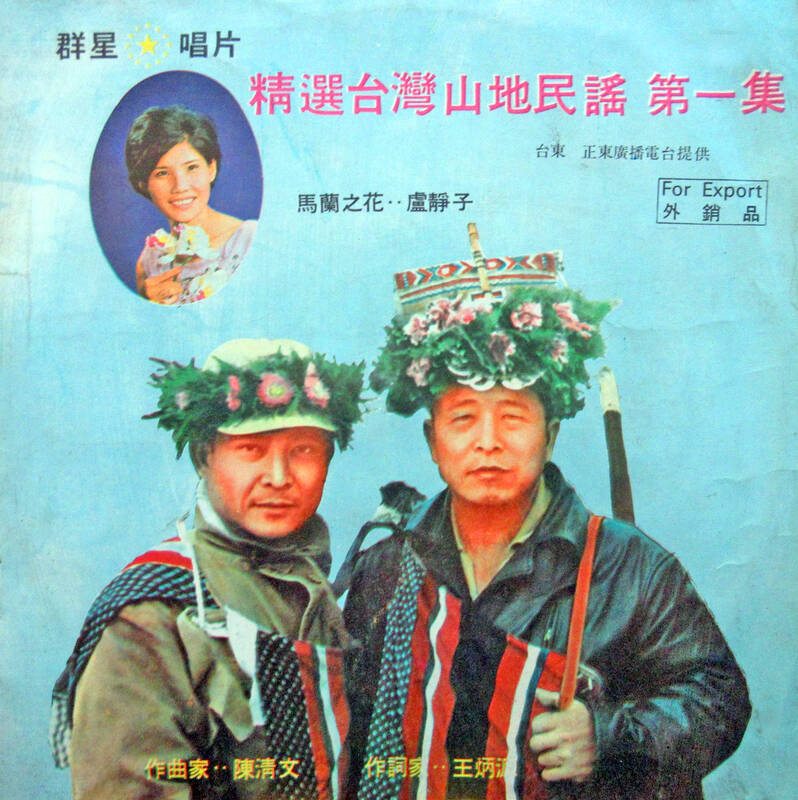
Photo courtesy of Eric Scheihagen
“The walls were lined with hundreds and hundreds of these cassette tapes, all Aboriginal music. Even then, a lot of it was actually from the early 1980s. I had never even heard of any of this stuff before,” he says.
Virtually all of the Abo-pop cassettes from the 1980s came from two record companies, Hsin Hsin Records and Tapes (欣欣唱片) in Tainan and Jen Sheng (振聲視聽) in Chaojhou Township (潮州), Pingtung County. Both were owned by Han Chinese and released other genres besides Abo pop.
The first record company with an indigenous founder to enter into this picture, Harlay Records (哈雷唱片), also based in Chaojhou, appeared in the early 1990s and “pretty much only released aboriginal music,” Scheihagen says.
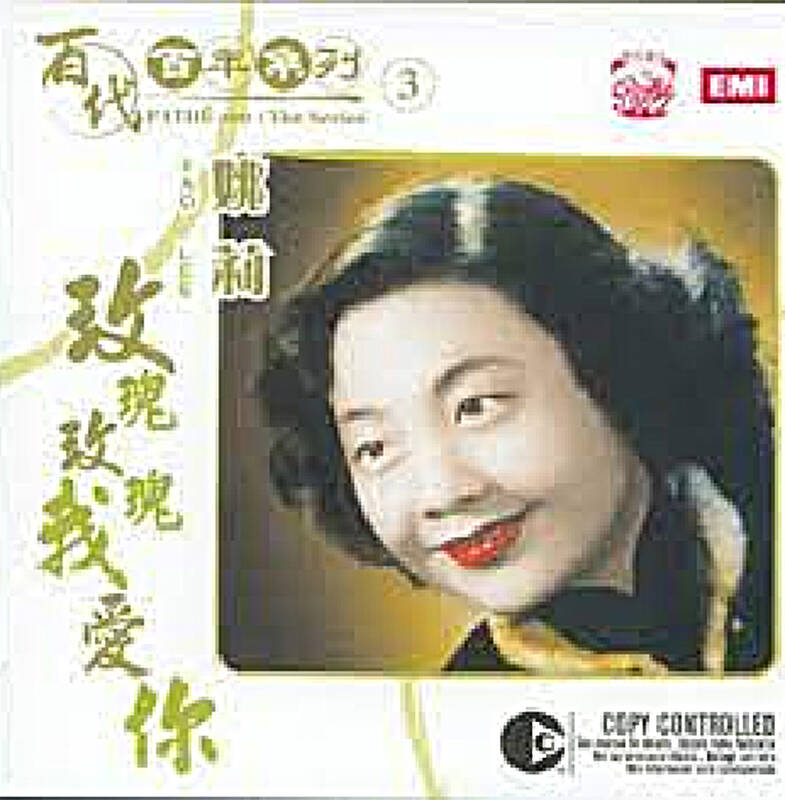
Photo courtesy of Eric Scheihagen
As Scheihagen immersed himself in this music, he found “there was absolutely no information on this,” he says. So he personally tracked down labels and pestered record shops to photocopy their catalogs. But even to this date, the trend is little known and receives almost no academic attention.
His research eventually uncovered a few of Abo-pop’s breakout hits, like the song Poor, Poor Man (可憐落魄人). Originally recorded in Taitung by Puyuma singer Tseng Hsiao-yu (鄭曉玉), a 1981 version released in Taipei by another Puyuma singer Chen Ming-jen (陳明仁) went on to sell half a million copies.
“And this was at a time when Teresa Teng was only selling 100,000 to 200,000 with each album,” he said.
Originally from Texas, Scheihagen came to Taiwan just out of college in 1992 to get a taste of Asia and teach English.
“In those days you heard current Mandarin pop songs everywhere. They were playing them in shops, night markets, all over the place,” he said.
He was already music obsessed, but a taste previously trained on American classic rock — “Beatles, Queen, Led Zeppelin, Genesis and bands like that” — retargeted itself towards Taiwanese pop. To process all this new music, he started making his own mix tapes, choosing personal favorites and popular songs, while his Taiwanese girlfriend (who later became his wife) introduced him to “the singer-songwriter type ballads that I wouldn’t necessarily get into on my own.”
SCARCE RESOURCES
Those were his first steps down the rabbit hole. But in trying to understand the history, he quickly ran into a wall.
“What I discovered is there was no comprehensive encyclopedia showing all the historical details. Nothing like Allmusic.com or one of those sites,” where he could find release dates or artist and label bios.
The only resource then available was The Best 100 Albums in Taiwanese Popular Music (台灣流行音樂100最佳專輯), a book first published in 1993 and later updated to The Best 200 Albums in 2008. Thousands of recordings however remained almost completely undocumented. Even now in the age of Wikipedia, info on many pre-1980 recordings is a complete black hole.
“For certain records I was curious about, the only way to find out for sure, was to actually find the original recordings or maybe look for references in newspapers,” says Scheihagen. “Most records didn’t even have liner notes, and of the records that did, sometimes they weren’t reliable.”
By the late 1990s, Scheihagen was on his way to becoming a serious collector. At that time, compact discs had all but rendered vinyl obsolete and radio DJs were liquidating their personal collections, which ended up in Taipei’s used record stores.
“It was a lot of stuff that you could never find today, or if you could, definitely not at that price. The records were all flat priced at NT$100 or NT$200,” he says.
Now, with the resurgence of vinyl, “there are a lot more collectors, and the prices are getting really ridiculous.”
Some records that Scheihagen once bought for peanuts, like 1980s releases by Hong Kong rock band Beyond or Taiwanese pioneer Lo Ta-yu (羅大佑) now routinely sell online for around NT$30,000 or more.
LECTURE
Over time, Scheihagen’s collection and DIY research became known among Taiwan’s music heritage crowd, and these friends introduced him to the Lung Yingtai Cultural Foundation, resulting in the upcoming talk.
As to the topic of transnational songs, he says, “I wanted to focus on songs that didn’t just cross boundaries –– for example, a lot of Japanese songs were rewritten with Mandarin lyrics in Taiwan in the 1960s, but they didn’t necessarily go anywhere else –– but songs that went in multiple direction with many versions in different countries and languages.”
These will include stories like that of the 1940 Shanghai-produced Mandarin hit Rose, Rose I Love You, which broke out from the Chinese world when it first aired on the BBC in 1951. Among British listeners, it became an instant hit and was re-recorded in multiple English versions, one of which rose to the third spot on America’s Billboard pop chart later the same year.
Other songs to be discussed originated from Okinawa, Indonesia, Thailand and the Philippines.
How long will the talk last?
“I have this problem,” says Eric. “Even with this current talk, at the start they said 45 minutes. I’m like 45 minutes! Even two hours is too short.”
He will do his best to squeeze it into 60 minutes, with a 15-minute Q&A.

In the next few months tough decisions will need to be made by the Taiwan People’s Party (TPP) and their pan-blue allies in the Chinese Nationalist Party (KMT). It will reveal just how real their alliance is with actual power at stake. Party founder Ko Wen-je (柯文哲) faced these tough questions, which we explored in part one of this series, “Ko Wen-je, the KMT’s prickly ally,” (Aug. 16, page 12). Ko was open to cooperation, but on his terms. He openly fretted about being “swallowed up” by the KMT, and was keenly aware of the experience of the People’s First Party

Aug. 25 to Aug. 31 Although Mr. Lin (林) had been married to his Japanese wife for a decade, their union was never legally recognized — and even their daughter was officially deemed illegitimate. During the first half of Japanese rule in Taiwan, only marriages between Japanese men and Taiwanese women were valid, unless the Taiwanese husband formally joined a Japanese household. In 1920, Lin took his frustrations directly to the Ministry of Home Affairs: “Since Japan took possession of Taiwan, we have obeyed the government’s directives and committed ourselves to breaking old Qing-era customs. Yet ... our marriages remain unrecognized,

Not long into Mistress Dispeller, a quietly jaw-dropping new documentary from director Elizabeth Lo, the film’s eponymous character lays out her thesis for ridding marriages of troublesome extra lovers. “When someone becomes a mistress,” she says, “it’s because they feel they don’t deserve complete love. She’s the one who needs our help the most.” Wang Zhenxi, a mistress dispeller based in north-central China’s Henan province, is one of a growing number of self-styled professionals who earn a living by intervening in people’s marriages — to “dispel” them of intruders. “I was looking for a love story set in China,” says Lo,

Standing on top of a small mountain, Kim Seung-ho gazes out over an expanse of paddy fields glowing in their autumn gold, the ripening grains swaying gently in the wind. In the distance, North Korea stretches beyond the horizon. “It’s so peaceful,” says the director of the DMZ Ecology Research Institute. “Over there, it used to be an artillery range, but since they stopped firing, the nature has become so beautiful.” The land before him is the demilitarized zone, or DMZ, a strip of land that runs across the Korean peninsula, dividing North and South Korea roughly along the 38th parallel north. This